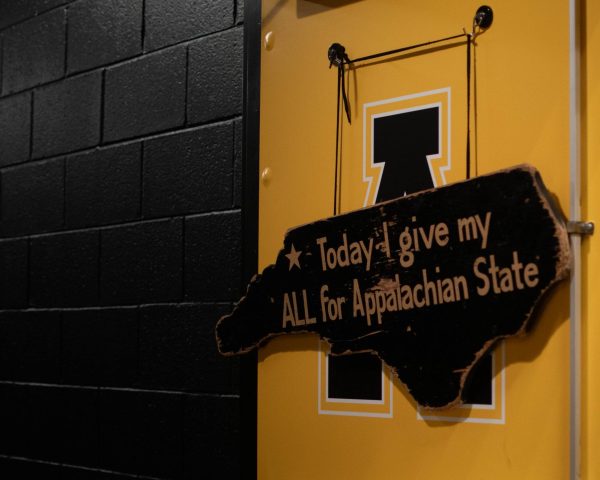Climate Action Plan now looks to 2035 for climate neutrality
February 8, 2020
In response to the worsening climate crisis, App State’s Climate Action Plan initiative is pushing for carbon neutrality quicker than previously thought. The CAP initiative is an organization on campus with the goal of achieving carbon neutrality by 2050, but recently, that goal was updated to 2035
Jan. 31, students and faculty in Blue Ridge Ballroom broke into interest-based groups, like campus heating and university transportation, and pitched ideas for reducing carbon emissions for the university.
Chief Sustainability Officer and Chair of the Sustainability Council, Lee Ball helped put together the forum, hoping to further the carbon neutrality goal.
“We’ve entered a time where more people are concerned. I’ve been doing this work my whole adult career, and I’ve never seen a time where people are rallying around an issue on all sides of the political spectrum,” Ball said.
Considering the political landscape is no longer against him, Ball and the CAP initiative has turned its attention locally.
“One of the big barriers currently is the fact that with our current utility contract, we’re not allowed to purchase solar energy. But, that’s about to change” Ball said. “In January 2022, we’re going to have the ability to purchase solar from our utility provider.”
The university will have to wait for solar until after its contract with New River Light and Power ends. However, Ball said there are more immediate concerns surrounding App State’s energy goals.
“Everybody defaults to cost,” Ball said. “But I think we can be very creative with how we finance our neutrality goals.”
Ball said he hopes to side-step cost concerns for the neutrality goal by creatively managing grants, the resources the university currently has and by finding “mutualism” between humans with limited resources to show people what they can do to help meet sustainability goals by doing what they do already.
Budgetary creativity will play a large role in achieving CAP’s newer and more imminent carbon neutrality goals. Currently, the largest carbon impact for App State is purchased electricity, which makes up approximately 40% of the university’s total carbon production.
After seeing how much carbon was produced from purchased electricity, Trenton Sawyer, a junior sustainable technology major, came away with new ideas for furthering sustainability goals.
“I believe the most valuable changes we can make revolve around HVAC and lighting,” Sawyer said.
Sawyer’s group, which focused on electricity, discussed topics ranging from outfitting streetlights with solar panels to making model buildings designed to maximize energy efficiency.
With the carbon neutrality deadline pushed closer, Sawyer said he has faith the initiative can achieve their goals with the new deadline, but remains reluctant.
“I believe if we want to make the process go faster, the college has to stop wasting money and readjust how it spends student’s tuition,” Sawyer said.
Ball said he remains optimistic despite working to solve problems like carbon pollution for so long.
“People understand that it’s good business, that climate action is good for the planet, climate action is good for the people that live on the planet. I think the time is ideal, and the stars have aligned,” Ball said.











